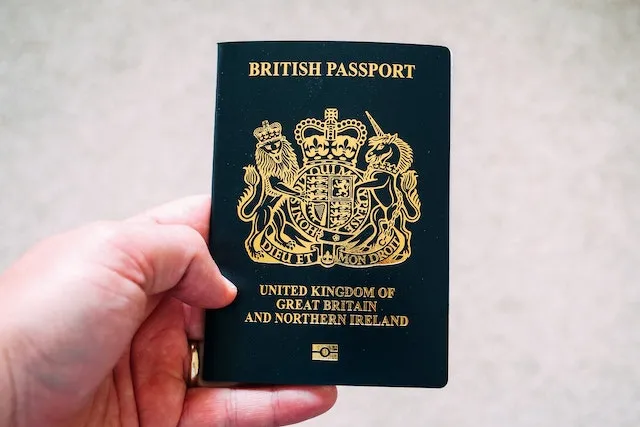Is Houston’S Tap Water Safe To Drink?
With concerns over water quality across the nation, many Houston residents wonder if their tap water is safe to consume. If you’re short on time, here’s a quick answer to your question: Yes, Houston’s tap water meets all federal and state safety standards and is safe to drink for most people.
In this comprehensive article, we’ll dive into the sources of Houston’s municipal water supply, the treatment and testing processes, any potential contaminants, and what certain vulnerable groups like pregnant women and infants should consider regarding Houston tap water.
Houston’s Water Sources and Treatment Process
When it comes to the safety of tap water in Houston, it is important to understand the sources and treatment process that the city follows. Houston relies on two main water sources – Lake Houston and Lake Conroe.
Lake Houston and Lake Conroe
Lake Houston and Lake Conroe are the primary water sources for the city of Houston. These lakes are reservoirs that collect water from various rivers and streams in the surrounding areas. The water is then treated at water treatment plants before it is distributed to households and businesses in the city.
The water in Lake Houston and Lake Conroe undergoes a thorough treatment process to ensure its safety for consumption. This includes disinfection, filtration, and the addition of corrosion inhibitors.
Disinfection and Filtration
Disinfection is an essential step in the water treatment process. This is done to eliminate harmful bacteria, viruses, and other microorganisms that may be present in the water. The most common method of disinfection used in Houston’s water treatment plants is chlorination.
Chlorine is added to the water to kill any harmful pathogens and ensure its safety.
Filtration is another crucial step in the treatment process. It helps in removing impurities and particles that may be present in the water. Multiple filtration techniques, including sand filters and activated carbon filters, are employed to ensure the water is clean and free from any contaminants.
Addition of Corrosion Inhibitors
One of the challenges faced by water treatment plants is the potential corrosion of pipes and plumbing fixtures. To combat this issue, Houston adds corrosion inhibitors to the water supply. These inhibitors help in reducing the corrosive effects of the water on the infrastructure, ensuring the water remains safe and the pipes are not affected.
For more information on Houston’s water treatment process, you can visit the Houston Public Works website.
Water Quality Standards and Testing in Houston
When it comes to the safety of tap water in Houston, residents can have peace of mind knowing that the city follows strict water quality standards set by the Environmental Protection Agency (EPA) and the Texas Commission of Environmental Quality (TCEQ).
These standards ensure that the water supplied to households is safe for drinking, cooking, and other everyday uses.
EPA and Texas Commission of Environmental Quality Standards
The EPA establishes maximum contaminant levels (MCLs) for various substances that may be present in drinking water. These MCLs are based on extensive research and are set at levels that are deemed safe for human consumption.
The TCEQ, on the other hand, enforces these standards at the state level and works closely with local water utilities to ensure compliance.
The MCLs cover a wide range of contaminants, including bacteria, viruses, heavy metals, pesticides, and industrial chemicals. Houston’s water treatment facilities are equipped with advanced filtration systems and disinfection processes to remove or reduce these contaminants to meet the required standards.
Annual Water Quality Reports
To further ensure transparency and accountability, the City of Houston provides annual water quality reports to its residents. These reports, also known as Consumer Confidence Reports (CCRs), contain detailed information about the water sources, treatment processes, and test results for various contaminants.
The CCRs are easily accessible to the public and can be found on the official website of the Houston Water Department. These reports provide valuable information about the quality of tap water in different neighborhoods and serve as a testament to the city’s commitment to providing safe drinking water.
Ongoing Monitoring for Contaminants
The monitoring of water quality in Houston is an ongoing process. Regular sampling and testing are conducted to ensure that the water supply meets the required standards. This includes testing for both regulated and unregulated contaminants to stay ahead of emerging issues and to address any potential risks to public health.
In addition to the routine monitoring, Houston also participates in the EPA’s Unregulated Contaminant Monitoring Rule Program. This program aims to identify and assess the presence of unregulated contaminants in the drinking water supply, allowing for a proactive approach to maintaining water quality.
Potential Contaminants in Houston’s Water
When it comes to the safety of tap water in Houston, it’s important to be aware of potential contaminants that may be present. While the city’s water treatment facilities strive to provide clean and safe drinking water, there are certain substances that can find their way into the water supply.
Lead
One of the potential contaminants in Houston’s tap water is lead. Lead can enter the water through corroded pipes, plumbing fixtures, or solder used in the plumbing system. Exposure to high levels of lead can be harmful, especially for young children and pregnant women.
According to the Environmental Protection Agency (EPA), the maximum allowable concentration of lead in drinking water is 15 parts per billion (ppb). Houston’s water treatment facilities regularly test for lead and take steps to address any issues that may arise.
It’s important for homeowners to also take precautions, such as using filters or flushing their taps if they suspect lead contamination.
Disinfection Byproducts
Another potential concern in Houston’s tap water is disinfection byproducts (DBPs). DBPs are formed when chlorine or other disinfectants react with organic matter in the water. While disinfectants are necessary to kill harmful bacteria and viruses, the byproducts that result from this process may pose health risks.
DBPs have been associated with an increased risk of certain health issues, including bladder cancer and reproductive problems. However, it’s important to note that the levels of DBPs in Houston’s tap water are generally within the limits set by the EPA.
Water treatment facilities in the city continuously monitor and adjust disinfection processes to minimize DBP formation.
Arsenic
Arsenic is another potential contaminant that may be found in Houston’s tap water. Arsenic can naturally occur in groundwater and can also enter the water supply through industrial waste or agricultural runoff.
Chronic exposure to high levels of arsenic has been linked to various health problems, including certain types of cancer.
The EPA has set the maximum allowable concentration of arsenic in drinking water at 10 parts per billion (ppb). Houston’s water treatment facilities regularly test for arsenic and take steps to ensure that the levels remain below this threshold.
Considerations for Vulnerable Populations
Infants
When it comes to the safety of Houston’s tap water, it is important to consider the needs of vulnerable populations, such as infants. The Environmental Protection Agency (EPA) sets standards for drinking water quality, and public water systems are required to meet these standards.
In Houston, the city’s water is treated and monitored to ensure it meets these regulations. However, it is recommended that tap water be boiled before giving it to infants under the age of one. Boiling water can help eliminate any potential contaminants and ensure the safety of the water for the little ones.
Pregnant Women
Pregnant women also fall into the category of vulnerable populations, as they have unique health considerations. The EPA’s drinking water standards take into account the needs of pregnant women and aim to protect their health and the health of their unborn babies.
Houston’s tap water is regularly tested for a range of contaminants, including lead and other harmful substances. Pregnant women can take additional precautions by using water filters certified to remove contaminants of concern.
It is always a good idea to consult with a healthcare provider for personalized advice based on individual circumstances.
Immunocompromised Individuals
For individuals with compromised immune systems, such as those undergoing chemotherapy or with certain medical conditions, the quality of tap water becomes an important consideration. The EPA’s drinking water standards are designed to protect the health of all individuals, including those with weakened immune systems.
However, certain contaminants, such as Cryptosporidium, may not be effectively removed by traditional water treatment methods. In such cases, it is recommended to consult with a healthcare provider for specific guidance on water safety and potential precautions that can be taken.
Conclusion
While no municipal water supply is 100% pure, Houston’s tap water meets all federal and state safety standards. Proper treatment and testing ensures contaminant levels remain within regulated limits. Individuals with special health conditions or concerns may want to take extra precautions, but the water is safe for most people to drink directly from the tap.








